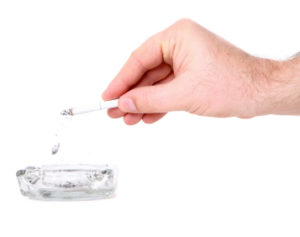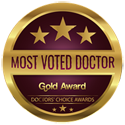 Smoking: We all know it is bad for us, but almost 20% of the world’s population over 18 still smoke. E-cigarettes, the “new form of smoking,” is a technology gaining in popularity, but there are still risks to keep in mind. Is it any better than cigarettes?
Smoking: We all know it is bad for us, but almost 20% of the world’s population over 18 still smoke. E-cigarettes, the “new form of smoking,” is a technology gaining in popularity, but there are still risks to keep in mind. Is it any better than cigarettes?
First, it is important to realize that while the FDA regulates both traditional cigarettes and tobacco for “roll-your-own” cigarettes, it does not regulate the e-cigarette industry. That means that you have no way of knowing how much nicotine or other harmful chemicals you may be inhaling. While it is true that e-cigarettes don’t contain traditional tobacco, they may not be nicotine free! In fact, most contain liquid nicotine. There’s a mechanism that heats up the liquid nicotine and turns it into a vapor that smokers inhale. No one knows the risks posed by this mechanism nor whether it is better or worse than traditional cigarettes.
Second, it can be difficult to differentiate between “real” e-cigarettes and “mods.” The real e-cigarettes generally come from “reputable” companies; however, “mods” are part of a dangerous subculture: Unlike regulated e-cigarettes, these modified (and cheaper) versions have very little oversight and safety testing.
Although some believe that e-cigarettes can simulate the pleasure of smoking, it may not be any safer than actual cigarettes. More research needs to be done on its effects. The use of e-cigarettes to aid in smoking cessation has not been endorsed by important safety and health institutions, and most caution users to engage at their own risk. If you or someone you know needs a push to quit smoking altogether, see Dr. Michelle Yagoda. Her integrative approach to health, wellness and beauty has helped hundreds of smokers successfully stop smoking. Let her help you be next! Did you know that after you stop smoking for two years your risk from smoking begins to drop? In fact, when you have stopped smoking for ten years, your risk becomes that of a non-smoker. What are you waiting for? How often in life do you get a second chance on your health? You will see and feel the difference as your skin reflects a healthier lifestyle and a more beautiful you!
































 Is the doctor really always right? Is it okay to question the expert? If you have worried that something was wrong even though the doc reassured you that it wasn’t, you are not alone.
Is the doctor really always right? Is it okay to question the expert? If you have worried that something was wrong even though the doc reassured you that it wasn’t, you are not alone.